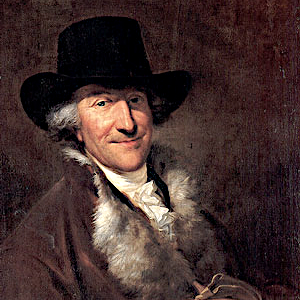
Featured by Spotify
This release is featured in the editorial Spotify playlist of handpicked new classical releases - August 2, 2019
Spotify Editorial Staff

**** Marvelous music, played with verve and dazzling dexterity
The Bach sons referenced, in this album's title, Fantasies & Illusions - Bach's Sons and the Fortepiano, are Carl Philipp Emanuel Bach and his older brother Wilhelm Friedemann. The pianist for this disc, Serbian-born Slobodan Jovanovic, also contributes a brief piece, and penned the extensive program notes about the music. Unfortunately, they are printed in German only, a language I barely know, so I cannot comment on their usefulness. What I can report with confidence is that the music is marvelous, and Jovanovic plays it with verve and dazzling dexterity. The chief thing to know about the Bach boys is that, despite having been instructed almost exclusively by their great father, the music that they produced represented a distinctive break from the world of the Baroque. C. P. E. Bach gives us rather more imaginative and lively music than his sibling, especially so in the fast outer movements of the Classically designed sonata. This music is bursting with joy. But he was also capable of considerable depth and repose, as in the beautiful Adagio of the sonata. The large Fantasia, clocking in here at 11 and a half minutes, is a work of extraordinary inventiveness, and most likely represents a setting down of one or more of the improvisations that the composer was widely renowned for. To my ears it sounds like a precursor to the Rondo in A Minor of Mozart.
Wilhelm Friedemann Bach's polonaises are not as zesty as C. P. E.'s works, but just as expertly constructed, with an added layer of gracefulness that sets them apart. The polonaise format was very popular in late 18th century Germany, although these brief, lighthearted pieces have nothing in common with the massive works that Chopin was to create in the same name a generation later. I first encountered this music many years ago at a live performance by the superb American fortepianist Andrew Willis. There are only a handful of recordings of this delightful music available (alas, Willis not among them), and so this new recording is very welcome, especially given the fine recorded sound and the superbly colorful palette of Susanne Merzdorf's excellent reproduction of a 1782 Anton Walter instrument.
Jovanovic's own music, which dates to 1996, is quirky but intriguing, reminding me of a music box that starts out with a simple, sing-song tune, then begins to malfunction, leading it into odd key changes and rhythmic hiccups before somehow fixing itself and returning to proper working order. He rather bravely inserts the five-minute piece among the polonaises, but despite vast stylistic differences, there is a sense of mutual intellectual curiosity that tends to make the whole sequence flow surprisingly smoothly.

Peter Burwasser - Fanfare Magazine,
also published on Amazon.com, February 2020


